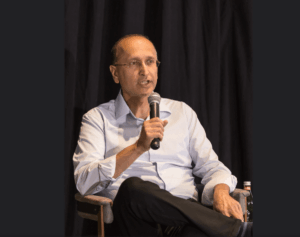
As Mark Zuckerberg builds Meta’s ambitious superintelligence lab, he is reportedly offering astronomical compensation packages to attract top-tier AI talent. According to sources, some offers reach up to $300 million over four years, with more than $100 million in total compensation for the first year alone. This aggressive recruitment strategy has targeted at least 10 employees from OpenAI, a leading player in the AI sector.
Meta’s enticing offers include immediate stock vesting in the first year, a move that underscores the company’s urgency to secure high-caliber researchers. However, not all recipients of these offers are swayed. A high-ranking researcher was offered the role of chief scientist but declined, highlighting the complex decision-making process for AI experts weighing financial incentives against potential impact at their current positions.
Meta’s High-Stakes Recruitment Strategy
The announcement comes as Meta aims to position itself at the forefront of AI innovation. Despite the lucrative offers, some OpenAI staff members express skepticism about the reported figures. “That’s about how much it would take for me to go work at Meta,” one anonymous OpenAI staffer told WIRED, reflecting on the balance between financial gain and professional fulfillment.
Meta spokesperson Andy Stone has dismissed claims of exaggerated compensation packages, stating, “These statements are untrue – the size and structure of these compensation packages have been misrepresented all over the place.” This sentiment was echoed by Andrew Bosworth, Meta’s chief technology officer, who addressed employees last week, clarifying that the $100 million is not a sign-on bonus but a combination of various elements.
Comparative Analysis of Compensation in Tech
To put Meta’s offers in perspective, consider the compensation of other tech leaders. Satya Nadella, CEO of Microsoft, received $79.1 million in total compensation in 2024, primarily in stock. Similarly, Uber’s CEO Dara Khosrowshahi earned approximately $39.4 million. These figures illustrate the extraordinary lengths Meta is willing to go to secure AI talent.
Meanwhile, a senior engineer at Meta confirmed earning around $850,000 annually, a significant sum that still falls short of the packages currently being offered. Data from Levels.FYI reveals that those in higher pay bands, such as E7 engineers, average $1.54 million per year.
The Formation of Meta’s Superintelligence Labs
On Monday, Zuckerberg introduced the newly formed superintelligence team to Meta staff. Alexandr Wang, formerly CEO of Scale AI, now serves as Meta’s chief AI officer, alongside Nat Friedman, the former head of GitHub. Together, they lead the Meta Superintelligence Labs, although no chief scientist or chief research officer has been appointed.
Interestingly, neither Wang nor Friedman are traditional researchers, raising questions about the strategic direction of the labs. Additionally, sources confirm that none of the OpenAI staff transitioning to Meta received the $300 million offer, suggesting a more nuanced negotiation process than initially reported.
Implications and Future Prospects
The move represents a significant investment in AI by Meta, reflecting the broader industry’s competitive landscape. As companies vie for top talent, the stakes continue to rise, with compensation packages reaching unprecedented levels. This development follows a growing trend of tech giants leveraging financial incentives to secure a competitive edge in AI research and development.
Looking ahead, the success of Meta’s superintelligence initiative will hinge on its ability to integrate new talent effectively and foster an environment conducive to groundbreaking research. As the AI talent war intensifies, the industry will watch closely to see how Meta’s bold strategy unfolds.
For those with insights into the AI talent war, Meta encourages secure communication through nonwork devices, highlighting the sensitive nature of these negotiations.







